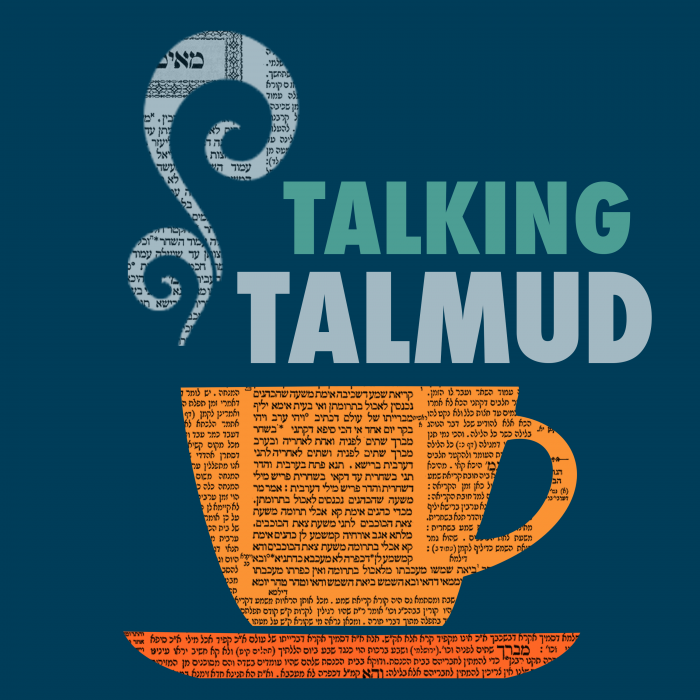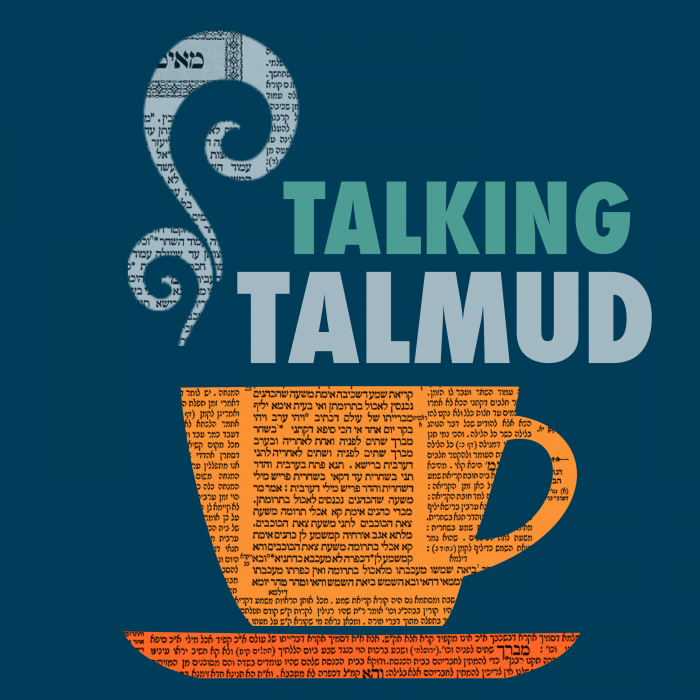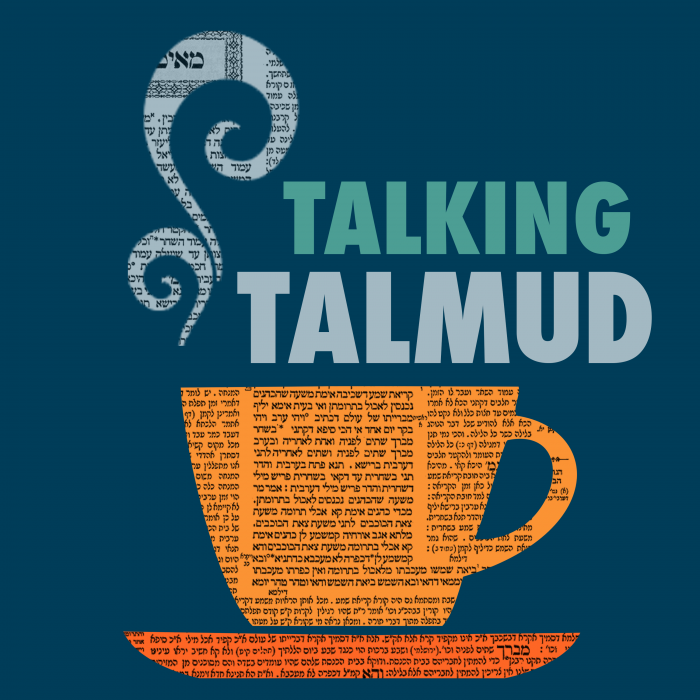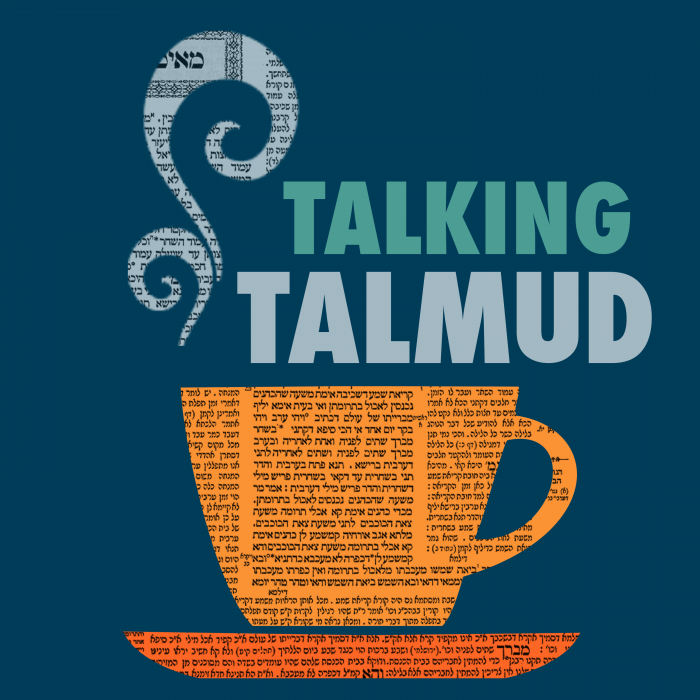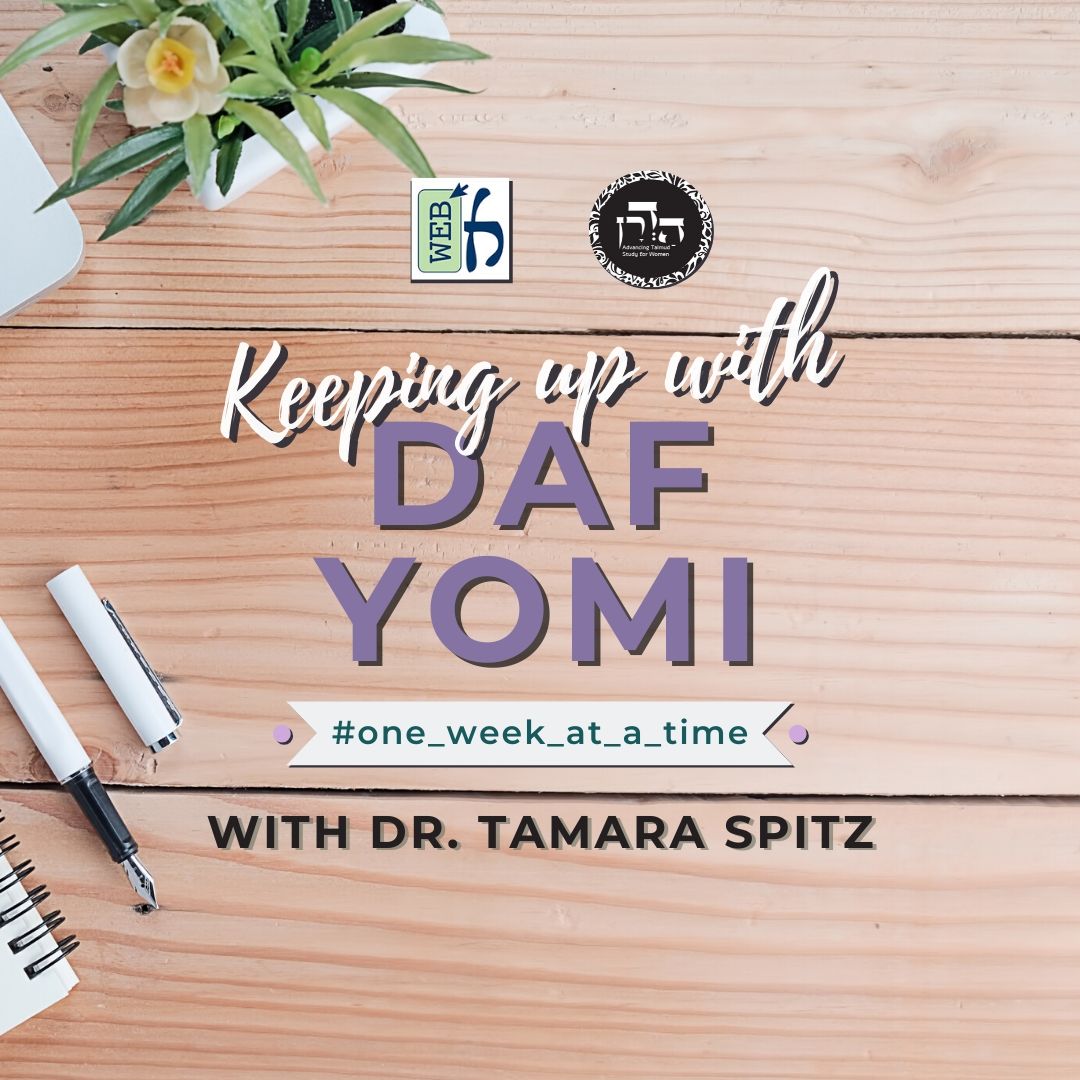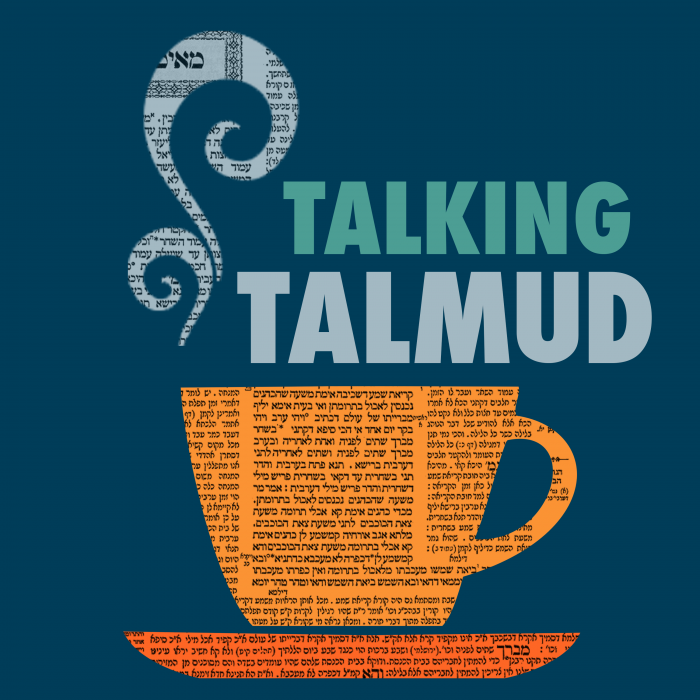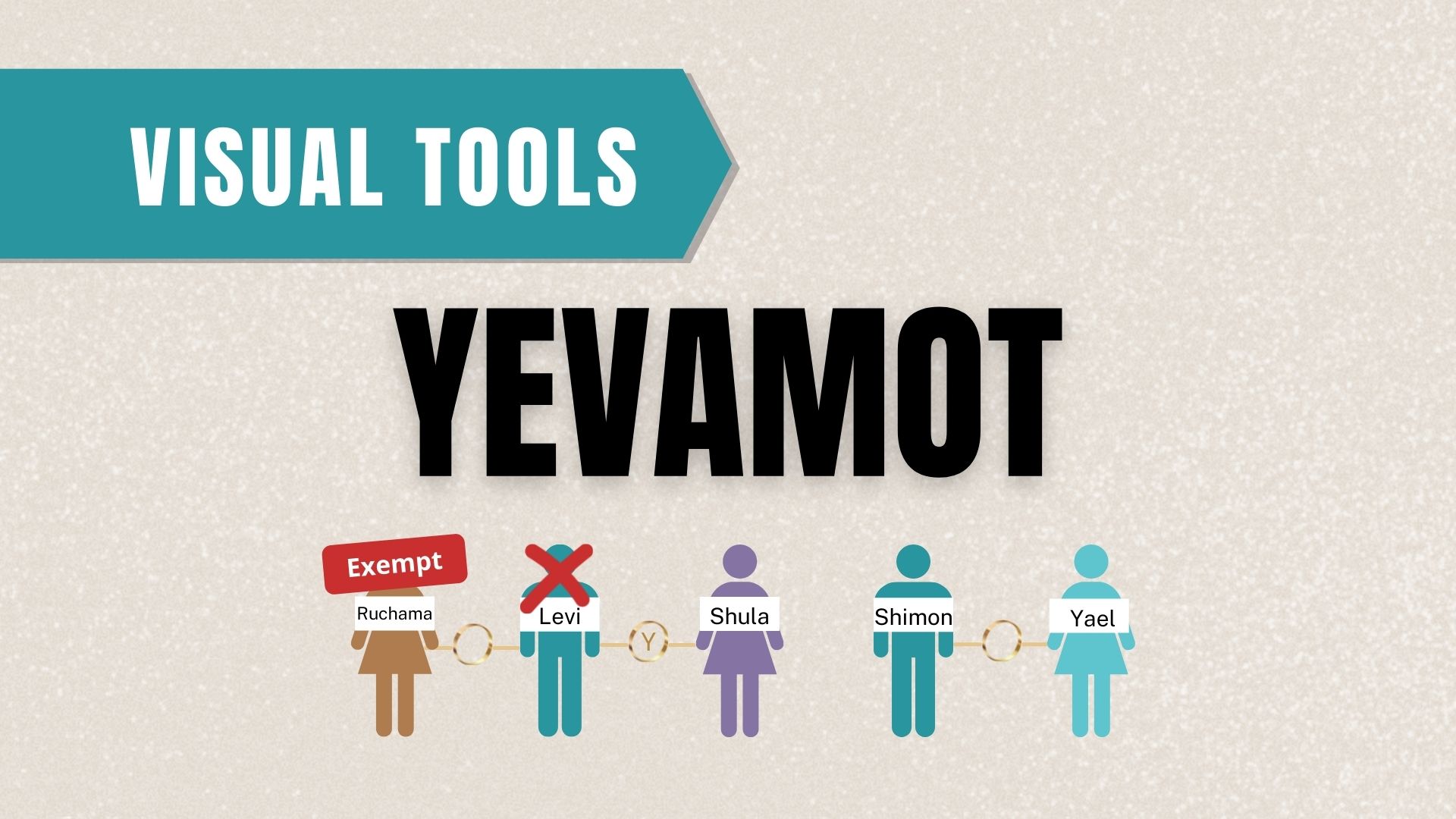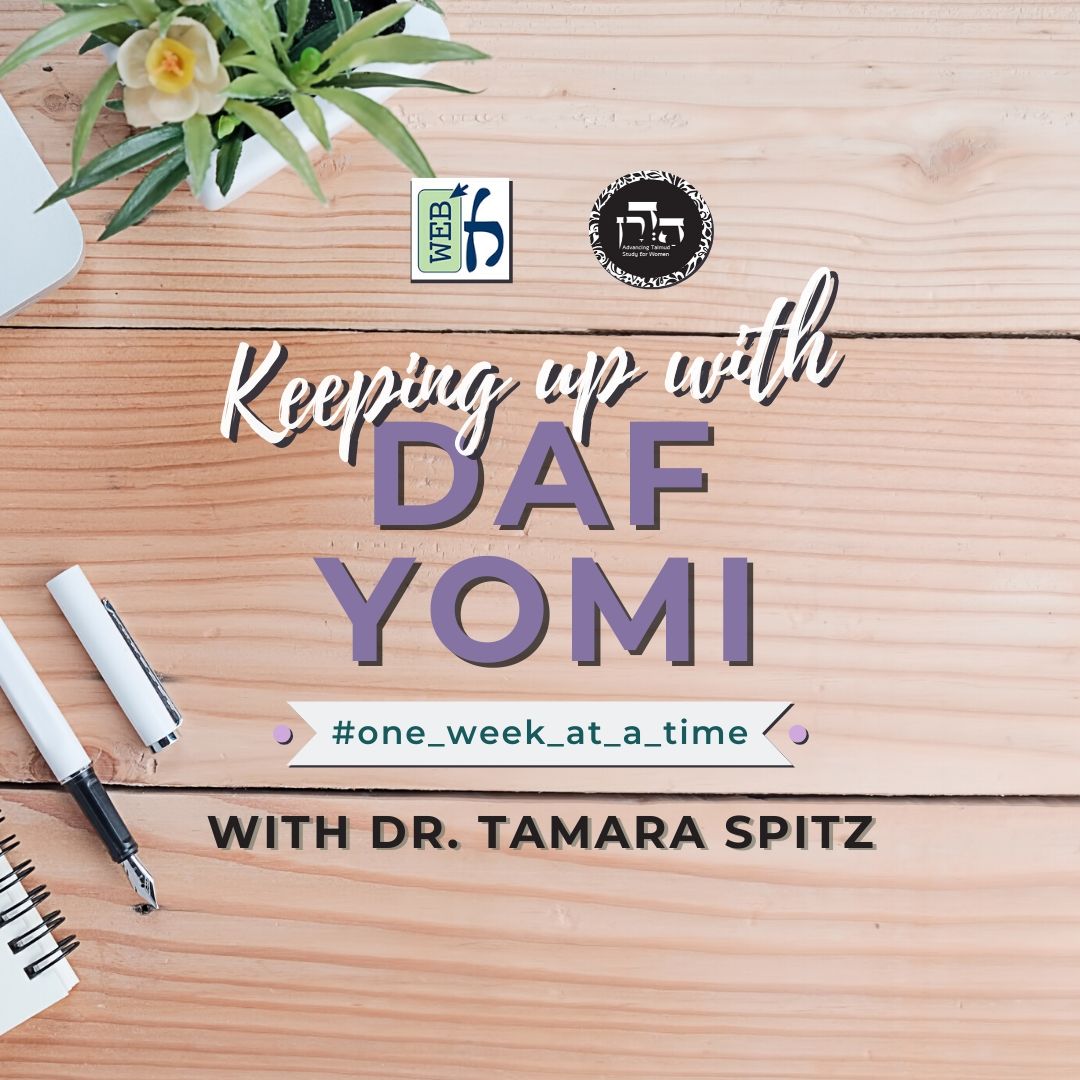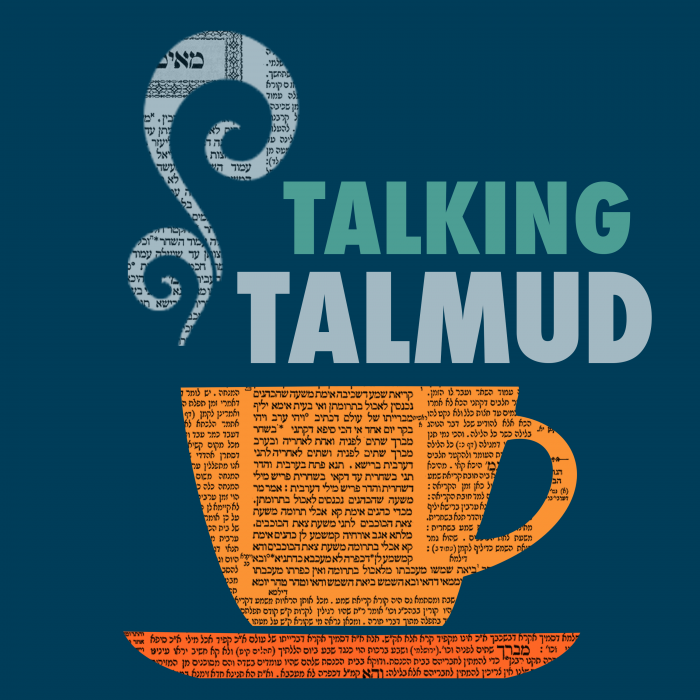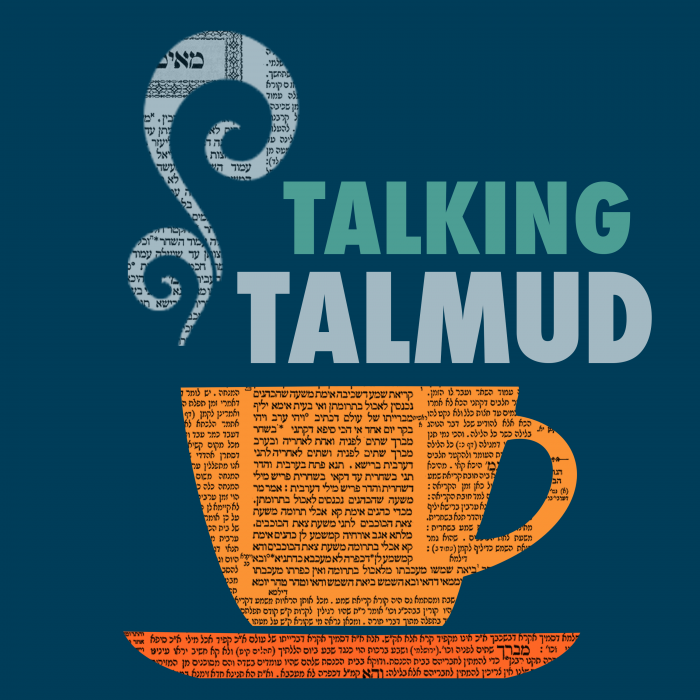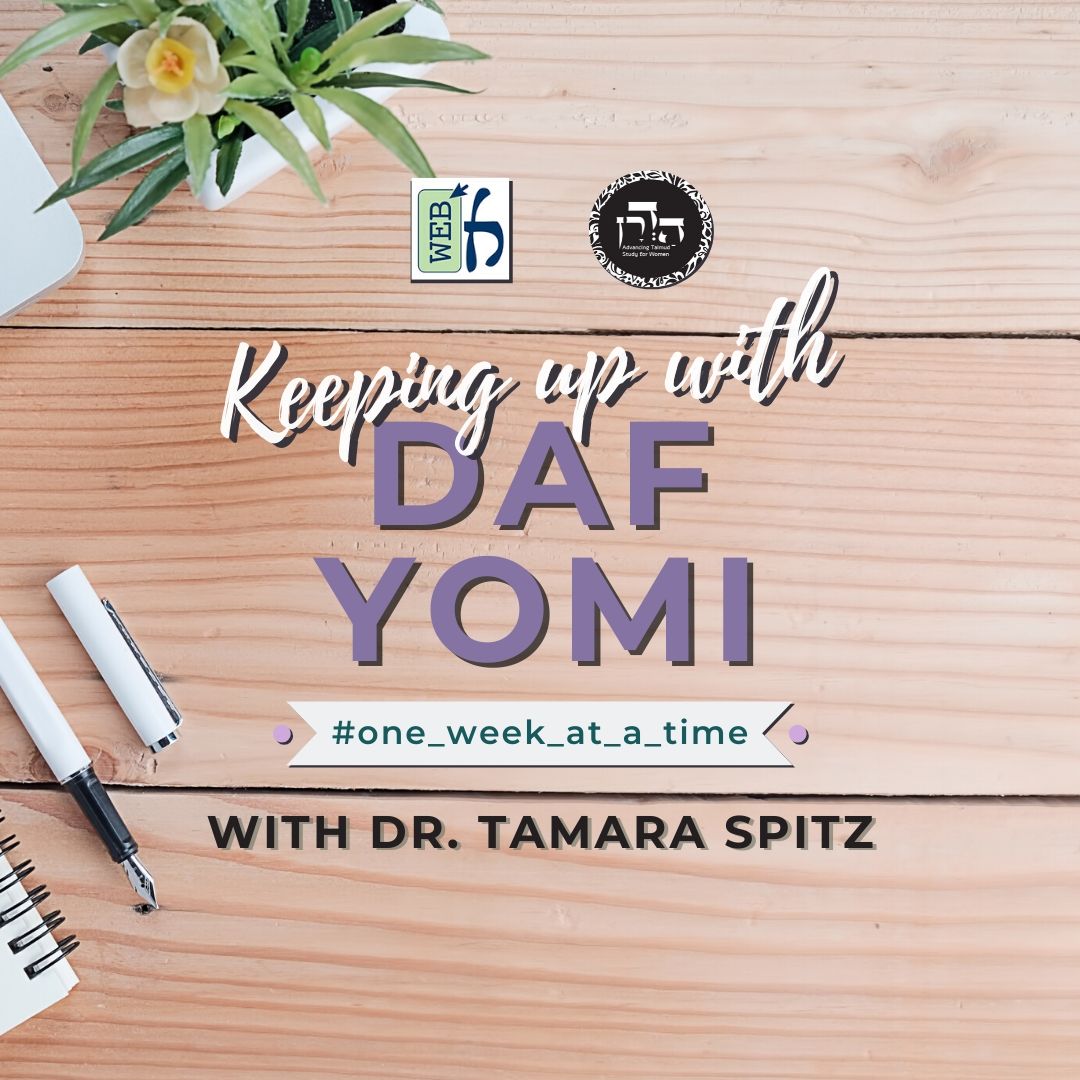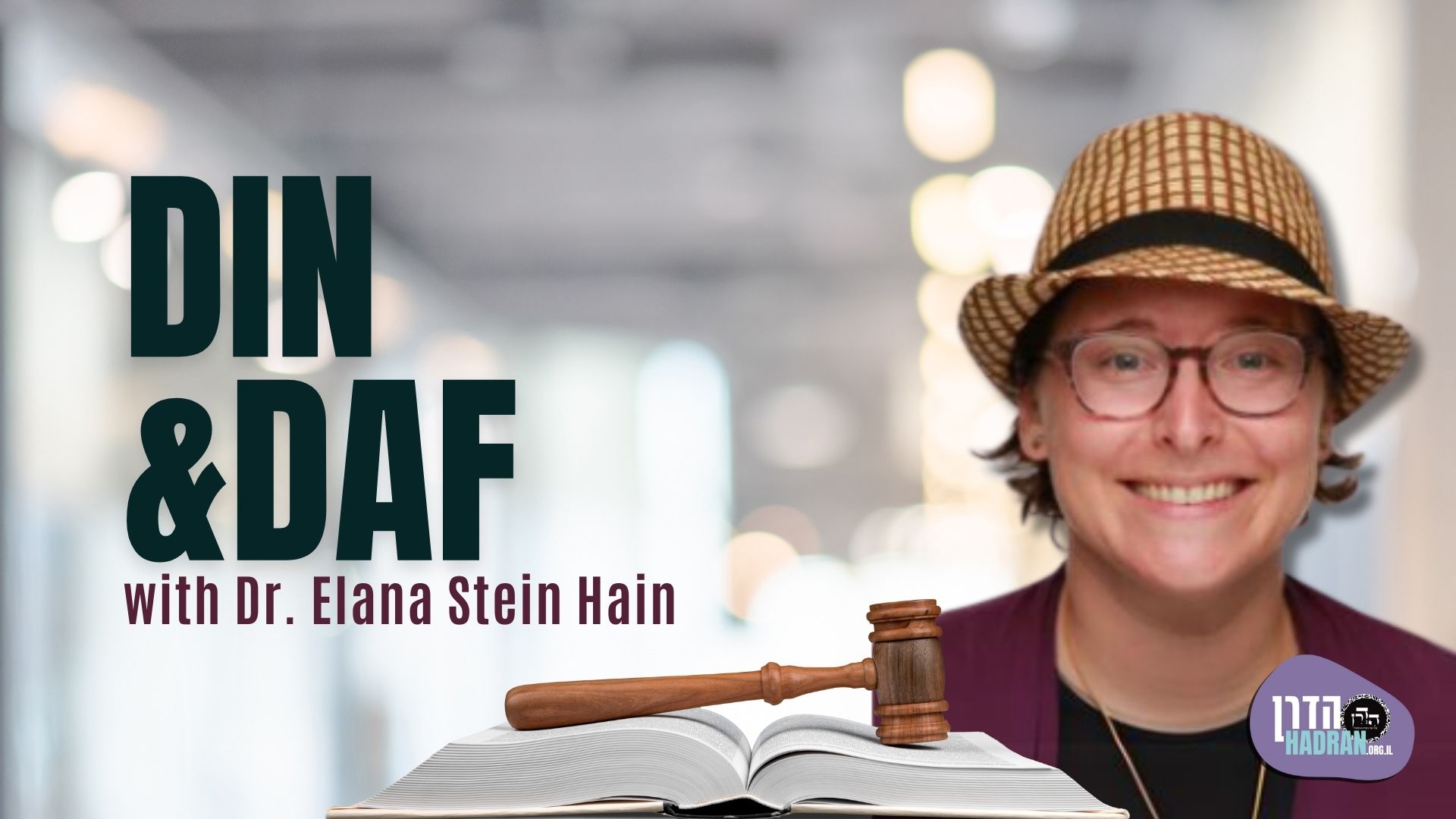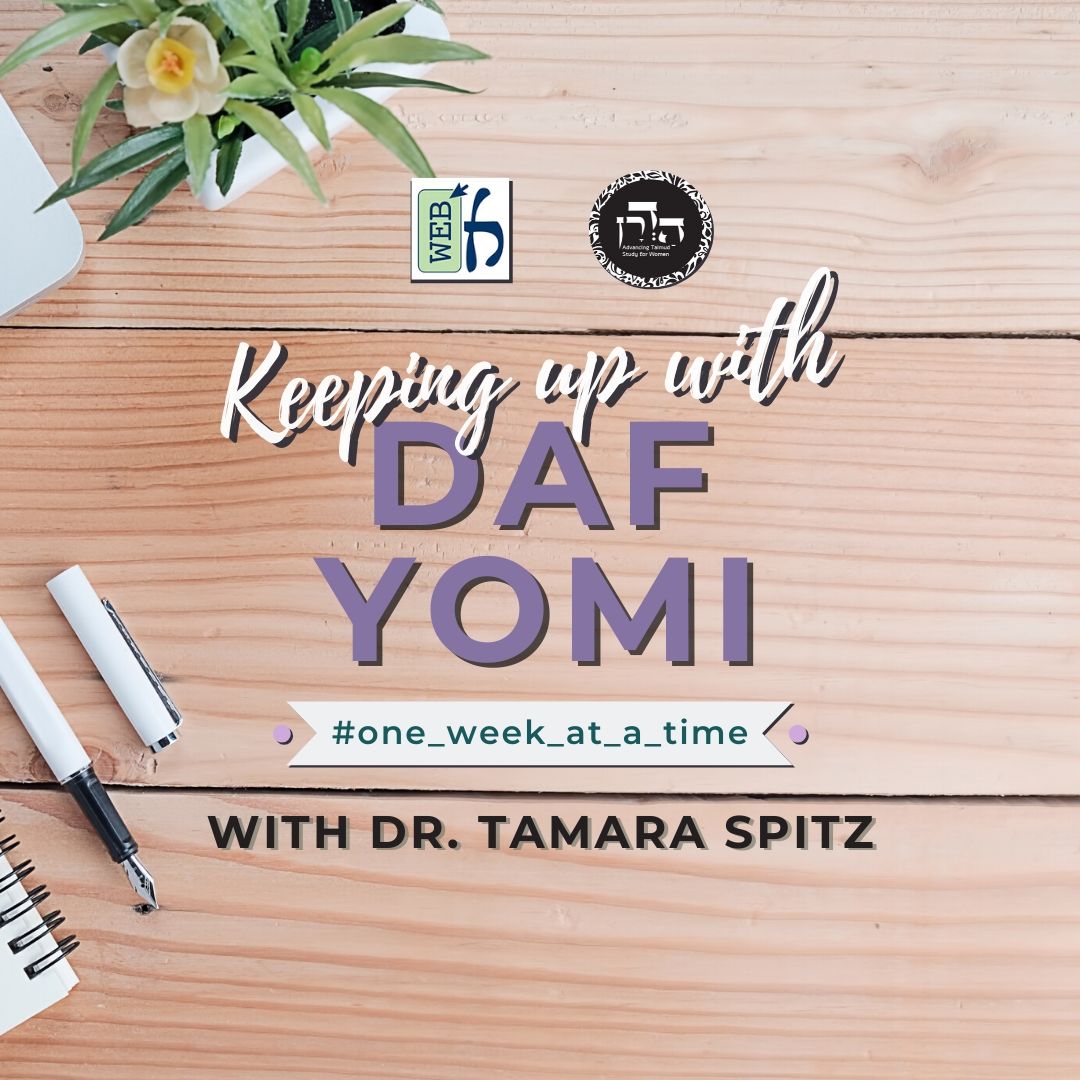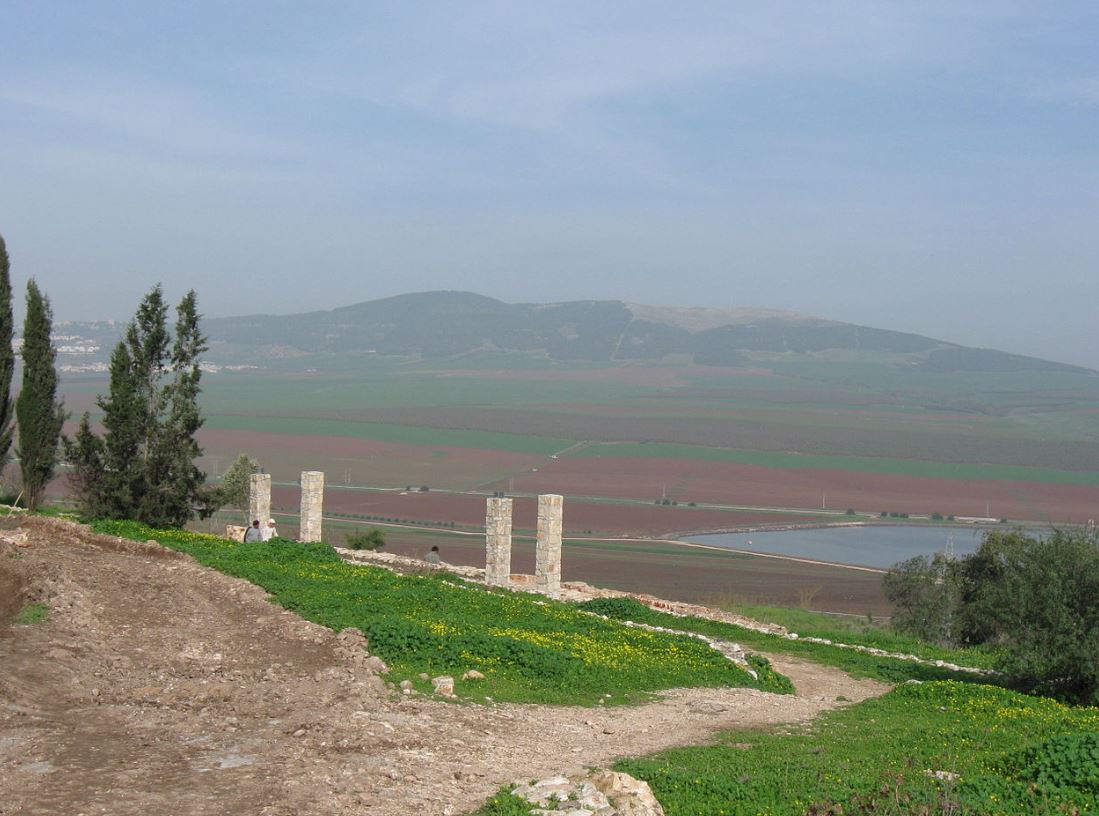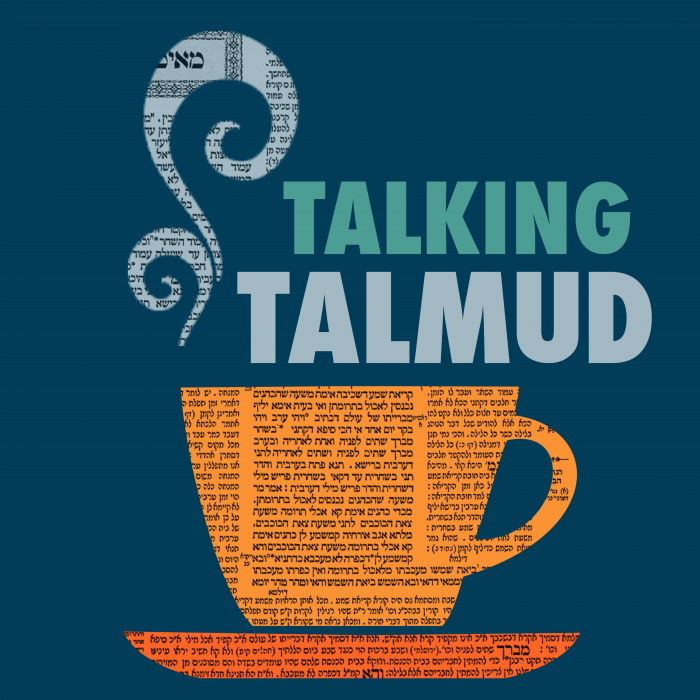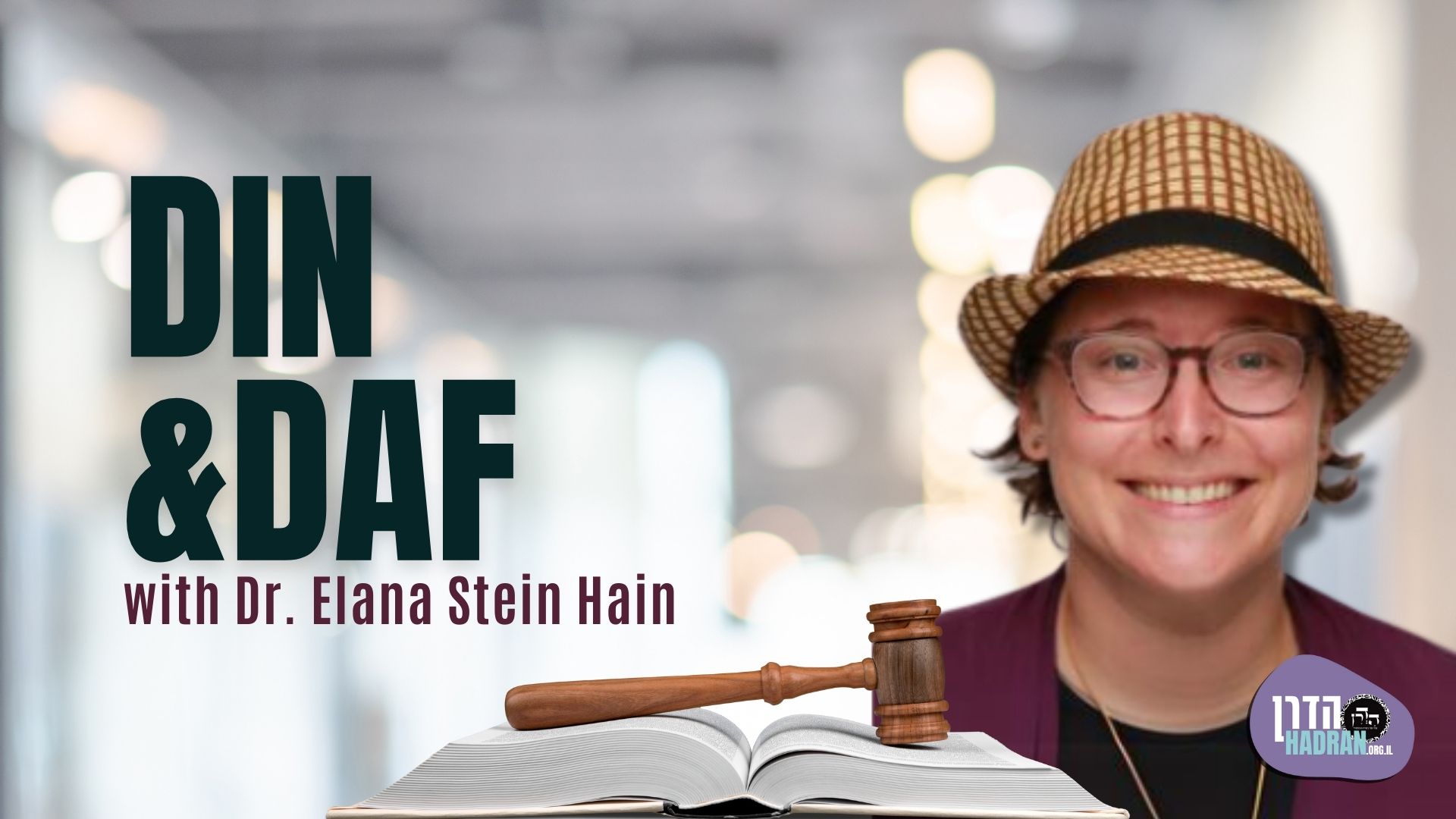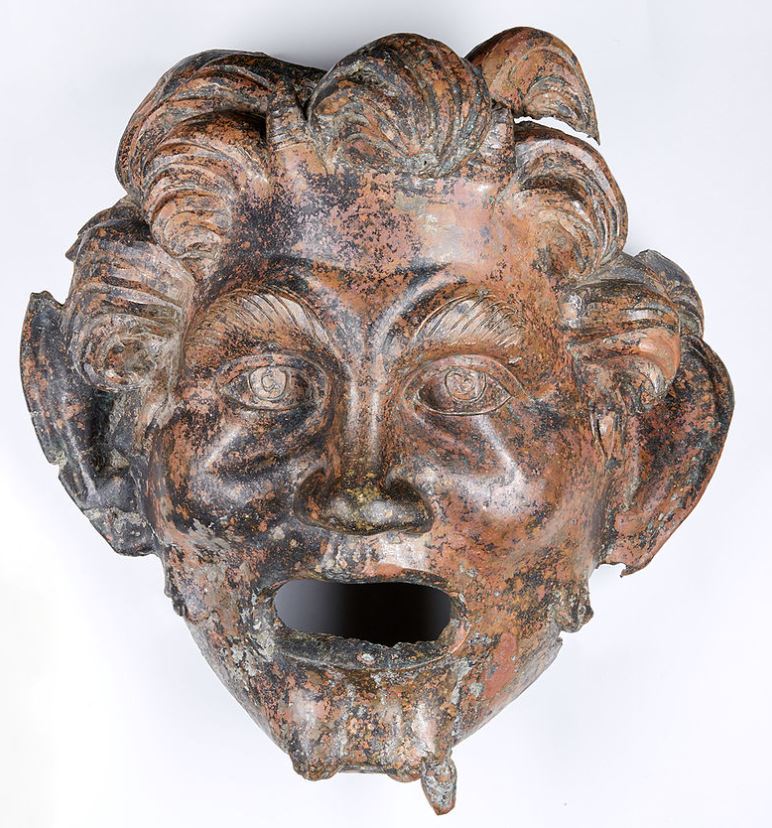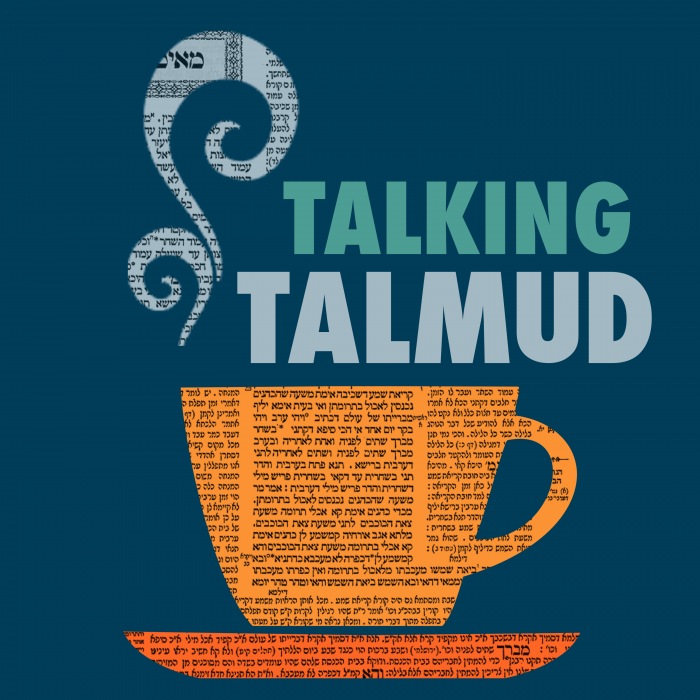The law regarding arakhin – if someone says “the value of my head upon me” it is valid and one needs to give the value of one’s entire body (since the person’s life is dependent upon it) – is also applicable to vows of valuation. If so, how does one reconcile this with a braita that says if one gives the head of a cow to hekdesh, only the head is sanctified (and other similar cases). One who says “the value of a newborn infant upon me” – since under 30 days there is no laws of arakhin, does one assume the person meant it as a vow and is obligated to pay their value or not? Is a non Jew included in the world of arakhin – both regarding the issue of if they say “the value of someone is upon me” or if a Jew says “the value of this non- Jew is upon me”?
This month’s learning is dedicated to the refuah shleima of our dear friend, Phyllis Hecht, גיטל פעשא בת מאשה רחל by all her many friends who love and admire her. Phyllis’ emuna, strength, and positivity are an inspiration.
Want to dedicate learning? Get started here:


Today’s daily daf tools:
This month’s learning is dedicated to the refuah shleima of our dear friend, Phyllis Hecht, גיטל פעשא בת מאשה רחל by all her many friends who love and admire her. Phyllis’ emuna, strength, and positivity are an inspiration.
Today’s daily daf tools:
Delve Deeper
Broaden your understanding of the topics on this daf with classes and podcasts from top women Talmud scholars.
New to Talmud?
Check out our resources designed to help you navigate a page of Talmud – and study at the pace, level and style that fits you.
The Hadran Women’s Tapestry
Meet the diverse women learning Gemara at Hadran and hear their stories.
Arakhin 5
״רַגְלָהּ שֶׁל זוֹ עוֹלָה״ — יָכוֹל תְּהֵא כּוּלָּהּ עוֹלָה? תַּלְמוּד לוֹמַר ״כֹּל אֲשֶׁר יִתֵּן מִמֶּנּוּ לַה׳ יִהְיֶה קֹּדֶשׁ״ — מִמֶּנּוּ קוֹדֶשׁ וְלֹא כּוּלָּהּ קוֹדֶשׁ.
The leg of this animal is a burnt offering, one might have thought that all of the animal will be a burnt offering. Therefore, the verse states: “And if it is an animal of those that they bring as an offering to the Lord, anything of it that one gives to the Lord, it shall be sacred” (Leviticus 27:9). The verse indicates that the part of it that one gives will be sacred, but not all of the animal will be sacred.
יָכוֹל תֵּצֵא לְחוּלִּין? תַּלְמוּד לוֹמַר: ״יִהְיֶה״ — בַּהֲוָיָיתָהּ תְּהֵא. הָא כֵּיצַד? תִּמָּכֵר לְצוֹרְכֵי עוֹלוֹת, וְדָמֶיהָ חוּלִּין, חוּץ מִדְּמֵי אוֹתוֹ אֵבֶר שֶׁבָּהּ, דִּבְרֵי רַבִּי מֵאִיר.
A non-sacred animal with a consecrated limb may not be sacrificed. Accordingly, one might have thought that the consecrated limb may be redeemed and thereby transferred to non-sacred status. Therefore the verse states: “Shall be,” meaning: It shall be as it is, i.e., the limb remains consecrated. How is this possible, i.e., what should one do in this case? The animal should be sold for the needs of burnt offerings, i.e., to an individual who will sacrifice the entire animal as a burnt offering, and the payment received for the animal will be non-sacred, except for the payment received in exchange for that limb of it that was consecrated. This is the statement of Rabbi Meir.
רַבִּי יְהוּדָה וְרַבִּי יוֹסֵי וְרַבִּי שִׁמְעוֹן אוֹמְרִים: מִנַּיִן לָאוֹמֵר ״רַגְלָהּ שֶׁל זוֹ עוֹלָה״, שֶׁכּוּלָּהּ עוֹלָה? תַּלְמוּד לוֹמַר: ״כֹּל אֲשֶׁר יִתֵּן מִמֶּנּוּ לַה׳ יִהְיֶה קֹּדֶשׁ״, לְרַבּוֹת אֶת כּוּלָּהּ.
Rabbi Yehuda and Rabbi Yosei and Rabbi Shimon say: From where is it derived that in the case of one who says: The leg of this animal is a burnt offering, all of the animal becomes a burnt offering? The verse states: “All that any man give of such to the Lord shall be holy” (Leviticus 27:9). The term “shall be” serves to include all of the animal, indicating that it all becomes sacred.
וַאֲפִילּוּ לְמַאן דְּאָמַר אֵין כּוּלָּהּ עוֹלָה, הָנֵי מִילֵּי דְּאַקְדֵּישׁ דָּבָר שֶׁאֵין הַנְּשָׁמָה תְּלוּיָה בּוֹ, אֲבָל דָּבָר שֶׁהַנְּשָׁמָה תְּלוּיָה בּוֹ — קָדְשָׁה כּוּלָּהּ.
And even according to the one, Rabbi Meir, who says that if one states: The leg of this animal is a burnt offering, not all of the animal is a burnt offering, that statement applies only if one consecrated an item that its life does not depend on, e.g., its leg. But if he consecrated an item that its life depends on, such as its head, the entire animal is consecrated. This presents a difficulty for Rava, who holds that the baraita that discusses consecration of the head is referring to items consecrated in order to purchase offerings for the altar. Why, then, isn’t the entire animal consecrated?
אֶלָּא, לָא קַשְׁיָא: הָא בִּקְדוּשַּׁת הַגּוּף, הָא בִּקְדוּשַּׁת דָּמִים.
Rava responds: Rather, both baraitot are referring to items consecrated for the altar, and even so it is not difficult. This baraita, which indicates that if one consecrated the head the entire animal is consecrated, is referring to inherent sanctity, i.e., where he consecrated the head for the purpose of sacrificing it on the altar. That baraita, which teaches that if he consecrated the head it alone is consecrated, is referring to sanctity that inheres in its value, that is, where he consecrated the head for the sake of purchasing offerings.
וְהָא מָר הוּא דְּאָמַר: מַקְדִּישׁ זָכָר לְדָמָיו — קָדוֹשׁ קְדוּשַּׁת הַגּוּף!
Abaye responded: But wasn’t it you, Master, who said that if one consecrated a male animal for its value, it is sanctified with inherent sanctity and it is itself sacrificed? This undermines the distinction that Rava is attempting to draw between inherent sanctity and sanctity that inheres in value.
לָא קַשְׁיָא: הָא דְּאַקְדֵּישׁ כּוּלָּהּ, הָא דְּאַקְדֵּישׁ חַד אֵבֶר.
Rava responds: It is not difficult. This statement, that an animal that was consecrated for its value attains inherent sanctity, applies only in a case where he consecrated the entire animal. There, in the baraita discussing the consecration of the head, it is referring to a situation where he consecrated only one limb. In such a case, the animal does not attain inherent sanctity.
חַד אֵבֶר נָמֵי אִיבְּעוֹיֵי אִיבַּעְיָא לַן, דְּבָעֵי רַבָּה: הִקְדִּישׁ אֵבֶר לְדָמָיו, מַהוּ?
Abaye replied: Actually, we also raised a dilemma with regard to a case where one consecrated only one limb. As Rabba raised a dilemma: If one consecrated a limb for its value in order to bring an offering with the proceeds, what is the halakha as to whether or not the entire animal is consecrated? If your interpretation of the baraita is correct, Rabba can resolve his question based on the baraita and conclude definitively that the entire animal is not sanctified for the altar.
כִּי אִיבְּעִי לַן בְּתָם, הָכָא בְּבַעַל מוּם, דּוּמְיָא דַּחֲמוֹר.
Rava responded: We raised this dilemma and entertained the possibility that the entire animal might be sanctified to the altar only in a case where the animal is unblemished, and is therefore fit to be used as an offering. But here, the baraita is referring to a blemished animal, similar to the parallel case of the donkey, which is unfit to be sacrificed. Since the animal in question is unfit for the altar, it is clear that the entire animal is not sanctified.
בַּעַל מוּם נָמֵי אִיבְּעוֹיֵי אִיבַּעְיָא לַן, דְּבָעֵי רַבָּה: ״דְּמֵי רֹאשִׁי לְגַבֵּי מִזְבֵּחַ״ מַהוּ? כִּי אִבַּעְיָא לָן מִקַּמֵּי דְּאֶשְׁמְעַהּ לְהָא מַתְנִיתָא, הַשְׁתָּא דְּשַׁמְעַהּ הָא מַתְנִיתָא — לָא מִיבַּעְיָא לַן.
Abaye responded: In fact, we also raised a dilemma with regard to a case where the animal is blemished and unfit to be sacrificed. As Rabba raised a dilemma: If one said: It is incumbent upon me to donate the value of my head to purchase offerings to be sacrificed on the altar, what is the halakha? Is he obligated in his entire value or not? A person is certainly not fit to be an offering, and yet Rabba does not resolve his question based on the baraita. Rava answered: We only raised this dilemma before hearing this baraita. Now that we have heard this baraita, we no longer raise this dilemma, as we concluded from the baraita that the entirety of the animal is not consecrated.
גּוּפָא, בָּעֵי רַבָּה: ״דְּמֵי רֹאשִׁי לְגַבֵּי מִזְבֵּחַ״ מַהוּ? נִידּוֹן בִּכְבוֹדוֹ, אוֹ אֵינוֹ נִידּוֹן בִּכְבוֹדוֹ?
§ The Gemara returns to the aforementioned matter itself. Rabba raised a dilemma: If one said: It is incumbent upon me to donate the value of my head to purchase offerings to be sacrificed on the altar, what is the halakha? Is it assessed by the significance of the body part in question, and since he consecrated a vital organ he is obligated in his entire value? Or perhaps it is not assessed by the significance of the body part in question, and only the head is consecrated.
לָא אַשְׁכְּחַן בְּדָמִים דְּאֵינוֹ נִידּוֹן בִּכְבוֹדוֹ, אוֹ דִלְמָא לָא אַשְׁכְּחַן לְגַבֵּי מִזְבֵּחַ דְּנִידּוֹן בִּכְבוֹדוֹ? תֵּיקוּ.
The Gemara explains the underlying issue: It can be argued that we have not found a case of assessments that is not assessed by the significance of the body part that was specified. Therefore, if one obligated himself in the value of a vital organ he should have to pay the entity’s entire value. Or perhaps he should be obligated only in the value of the head, as we have not found a case of an animal that is sacrificed on the altar that is assessed by the significance of the body part in question, i.e., that if one consecrates the value of one vital organ the entire animal is consecrated. The Gemara concludes: The dilemma shall stand [teiku] unresolved.
בָּעֵי רָבָא: ״עֶרְכִּי עָלַי לְגַבֵּי מִזְבֵּחַ״ מַהוּ? נִידּוֹן בְּהֶשֵּׂג יָד, אוֹ אֵין נִידּוֹן בְּהֶשֵּׂג יָד?
Rava raised a further dilemma: If one said: It is incumbent upon me to donate my valuation for the altar, rather than for Temple maintenance, as is usually the case, what is the halakha? Is this case determined based on affordability if he is poor, like regular valuations? Or perhaps it is not determined based on affordability, and he is obligated in the full valuation even if he is poor.
לָא אַשְׁכְּחַן בַּעֲרָכִין דְּאֵין נִידּוֹן בְּהֶשֵּׂג יָד, אוֹ דִלְמָא לָא אַשְׁכְּחַן לְגַבֵּי מִזְבֵּחַ דְּמִיפְּרִיק אֶלָּא בְּשׇׁוְיוֹ? תֵּיקוּ.
The Gemara explains the sides of the dilemma: One can argue that we have not found a case of valuations that is not determined based on affordability. Therefore, the principle of affordability should apply even when one vows for the purpose of sacrificing offerings on the altar. Or perhaps this case should not be determined based on affordability, as we have not found an item that is consecrated for the purpose of sacrificing offerings on the altar that is redeemed in a manner other than according to its value. The Gemara again concludes: The dilemma shall stand unresolved.
בָּעֵי רַב אָשֵׁי: הִקְדִּישׁ שְׂדֵה אֲחוּזָּה לְגַבֵּי מִזְבֵּחַ, מַהוּ? מִי אָמְרִינַן: לָא אַשְׁכְּחַן שְׂדֵה אֲחוּזָּה דְּמִיפָּרְקָא אֶלָּא ״בֵּית זֶרַע חוֹמֶר שְׂעוֹרִים בַּחֲמִשִּׁים שֶׁקֶל כָּסֶף״, אוֹ דִלְמָא לָא אַשְׁכְּחַן לְגַבֵּי מִזְבֵּחַ דְּמִיפְּרִיק אֶלָּא בְּשׇׁוְיוֹ? תֵּיקוּ.
Rav Ashi raised a similar dilemma: If a person consecrated an ancestral field for the purpose of sacrificing offerings on the altar, rather than for Temple maintenance, as is usually the case, what is the halakha? Do we say that we have not found a case of an ancestral field that is redeemed other than by the standard rate established by the Torah, which is that an area fit for the sowing of a ḥomer, a kor, of barley seed is redeemed for fifty silver shekels? Or perhaps it should be redeemed according to its market value, as we have not found a case of an item that is consecrated for the purpose of sacrificing offerings on the altar that is redeemed in a manner other than according to its value. Once again, the Gemara states: The dilemma shall stand unresolved.
מַתְנִי׳ פָּחוֹת מִבֶּן חֹדֶשׁ נִידָּר, אֲבָל לֹא נֶעֱרָךְ.
MISHNA: A child less than one month old is the object of a vow if others vowed to donate his assessment, but is not valuated if one vowed to donate his fixed value, as the Torah did not establish a value for anyone less than a month old.
גְּמָ׳ תָּנוּ רַבָּנַן: הַמַּעֲרִיךְ פָּחוֹת מִבֶּן חֹדֶשׁ, רַבִּי מֵאִיר אוֹמֵר: נוֹתֵן דָּמָיו, וַחֲכָמִים אוֹמְרִים: לֹא אָמַר כְּלוּם.
GEMARA: The Sages taught in a baraita: With regard to a case of one who takes a vow of valuation concerning a child less than one month old, Rabbi Meir says: The person who valuated is obligated to give the child’s assessment. The Rabbis say: He has said nothing, i.e., he is not obligated to give anything.
בְּמַאי קָמִיפַּלְגִי? רַבִּי מֵאִיר סָבַר: אֵין אָדָם מוֹצִיא דְּבָרָיו לְבַטָּלָה, יוֹדֵעַ שֶׁאֵין עֲרָכִין לְפָחוֹת מִבֶּן חֹדֶשׁ, וְגָמַר וְאָמַר לְשֵׁם דָּמִים; וְרַבָּנַן סָבְרִי: אָדָם מוֹצִיא דְּבָרָיו לְבַטָּלָה.
The Gemara asks: With regard to what principle do they disagree? Rabbi Meir holds: A person does not issue his statement of consecration for naught. The assumption is that a person knows that there are no valuations for a child less than one month old, and therefore he intended and said his statement for the sake of assessments, i.e., he meant to vow to give the child’s market value. And the Rabbis hold that a person does make his statement of consecration for naught. Therefore, his statement is taken at face value, and he is not obligated to give anything.
כְּמַאן אָזְלָא הָא דְּאָמַר רַב גִּידֵּל אָמַר רַב: הָאוֹמֵר ״עֵרֶךְ כְּלִי עָלַי״ נוֹתֵן דָּמִים — כְּרַבִּי מֵאִיר. פְּשִׁיטָא דִּכְרַבִּי מֵאִיר אַתְיָא!
The Gemara asks: In accordance with whose opinion is that which Rav Giddel says that Rav says: One who says: It is incumbent upon me to donate the valuation of this utensil, is obligated to give its assessment? It is in accordance with the opinion of Rabbi Meir, who holds that a person does not issue a statement of consecration for naught. Since utensils are not subject to valuation, he presumably intended to obligate himself in its assessment. The Gemara asks: Isn’t it obvious that Rav’s statement is in accordance with the opinion of Rabbi Meir? Why was it necessary for the Gemara to state this?
מַהוּ דְּתֵימָא, אֲפִילּוּ כְּרַבָּנַן, הָתָם הוּא דְּטָעֵי, סָבַר: כִּי הֵיכִי דְּאִיכָּא עֲרָכִין לְבֶן חוֹדֶשׁ, אִיכָּא נָמֵי לְפָחוֹת מִבֶּן חוֹדֶשׁ.
The Gemara explains that it was necessary to state that Rav’s statement is in accordance with the opinion of Rabbi Meir, lest you say that it is even in accordance with the opinion of the Rabbis, who exempt one who valuates a child under a month old. The Gemara elaborates: One could say that it is only there, in the case of the child, that one errs and thinks that just as there are valuations for a child who is one month old, there are also valuations for a child less than one month old. Since his vow was based on an error, he is not obligated to pay anything.
אֲבָל הָכָא דְּלֵיכָּא לְמִיטְעֵי, וַדַּאי אָדָם יוֹדֵעַ שֶׁאֵין עֵרֶךְ לִכְלִי, וְגָמַר וְאָמַר לְשֵׁם דָּמִים, קָמַשְׁמַע לַן.
But here, in the case of one who valuates a utensil, where there is no possibility of erring, it can be argued that a person certainly knows that there is no valuation for a utensil, and he therefore intended and said his statement for the sake of assessments, i.e., he meant to vow to donate the utensil’s value. Therefore, the Gemara teaches us that Rav’s statement is in accordance with the opinion of Rabbi Meir only, and not with that of the Rabbis. The Rabbis hold that a person does issue a statement of consecration for naught even in such a case, and therefore his declaration is taken at face value.
וּלְרַבִּי מֵאִיר לְמַאי אִיצְטְרִיךְ?
The Gemara asks: And as Rav stated his halakha in accordance with Rabbi Meir, who says that one who valuates a child less than a month old must pay his assessment, for what reason was it necessary for Rav to state his ruling? Isn’t this obvious?
מַהוּ דְּתֵימָא: טַעְמָא דְּרַבִּי מֵאִיר הָתָם, דְּגָזַר פָּחוֹת מִבֶּן חוֹדֶשׁ אַטּוּ בֶּן חוֹדֶשׁ, אֲבָל הָכָא דְּלֵיכָּא לְמִיגְזַר — אֵימָא לָא. קָא מַשְׁמַע לַן: טַעְמָא דְּרַבִּי מֵאִיר דְּאֵין אָדָם מוֹצִיא דְּבָרָיו לְבַטָּלָה, לָא שְׁנָא הָכָא וְלָא שְׁנָא הָכָא.
The Gemara answers: It was necessary for him to state this halakha, lest you say that the reason that Rabbi Meir obligates him to pay the assessment there, in the case of the child, is that he decrees one must pay if the child is less than a month old, due to concern that otherwise people might mistakenly refrain from paying the valuation of a child who is a month old. But here, in the case of one who valuates a utensil, where there is no cause for such an error and therefore no need to decree, one might say that Rabbi Meir would not obligate him to pay. Therefore, Rav teaches us that since the reason of Rabbi Meir is that a person does not make his statement of consecration for naught, there is no difference between here, the case of a child, and there, with regard to a utensil. Rather, the halakha is the same in both cases.
כְּמַאן אָזְלָא הָא דְּאָמַר רַבָּה בַּר יוֹסֵף אָמַר רַב, וְאָמְרִי לַהּ אָמַר רַב יֵיבָא בַּר יוֹסֵי אָמַר רַב: הַמַּקְדִּישׁ בֶּהֱמַת חֲבֵירוֹ נוֹתֵן דָּמֶיהָ? כְּמַאן — כְּרַבִּי מֵאִיר.
The Gemara asks: In accordance with whose opinion is that which Rabba bar Yosef says that Rav says, and some say that Rav Yeiva bar Yosei says that Rav says: One who consecrates the animal of another must give its assessment. In accordance with whom? It is in accordance with the opinion of Rabbi Meir, that one does not issue a statement of consecration for naught. Since he knows that he cannot consecrate that which is not his, he meant to obligate himself in the animal’s assessment.
הָא אַמְרַהּ רַב חֲדָא זִימְנָא, דְּאָמַר רַב גִּידֵּל אָמַר רַב: הָאוֹמֵר ״עֵרֶךְ כְּלִי עָלַי״ נוֹתֵן דָּמָיו! מַהוּ דְּתֵימָא הָתָם הוּא דְּיוֹדֵעַ שֶׁאֵין עֵרֶךְ לִכְלִי, וְגָמַר וְאָמַר לְשֵׁם דָּמִים.
The Gemara asks: But didn’t Rav already say it once? As Rav Giddel says that Rav says: One who says: It is incumbent upon me to donate the valuation of a utensil, must give its assessment. The Gemara answers: Rav found it necessary to issue both statements, lest you say that this halakha applies only there, with regard to a utensil, as a person knows that a utensil has no valuation, i.e., that the term: Valuation, is not relevant to a utensil, and therefore it must be that he decided to donate money and says this expression as a reference to its monetary value, using the term: Valuation, imprecisely.
אֲבָל בְּהֵמָה, דְּבַת מִיקְדַּשׁ הִיא, אִיכָּא לְמֵימַר דְּהָכִי קָאָמַר: אִי אָמֵינָא לֵהּ לְמַרַּהּ מְזַבֵּין לַהּ נִיהֲלִי, תִּיקְדּוֹשׁ לַהּ מֵהַשְׁתָּא וְאַקְרְבַהּ, אֲבָל דְּמֵי לָא קָאָמַר, קָא מַשְׁמַע לַן.
But in the case where one obligated himself in the valuation of another’s animal, which is subject to consecration, albeit not by him, there is room to say that this is what he is saying to himself: Were I to say to the owner that I want to buy it, he would sell it to me. Therefore, let it be consecrated from now, and I will sacrifice it once I purchase it from him. His intent is to consecrate the animal itself in order to sacrifice it. But since he did not say to himself that he would give its assessment, his statement is meaningless, as one cannot consecrate property that does not belong to him. Therefore, Rav teaches us that this is not the case. Rather, his statement should be interpreted in such a manner that he is obligated to give the assessment of the animal to the Temple treasury.
אָמַר רַב אָשֵׁי: וְהוּא דְּאָמַר ״עָלַי״, אֲבָל אָמַר ״הֲרֵי זוֹ״ — לֹא.
Rav Ashi says: And Rav’s ruling applies only in a case where one says: It is incumbent upon me to donate to the Temple treasury. But if he says: This animal is consecrated, he is not obligated to pay its assessment. This formulation clearly indicates that he intended to consecrate this animal, which he cannot do, as it does not yet belong to him.
מַתְנִי׳ נָכְרִי — רַבִּי מֵאִיר אוֹמֵר: נֶעֱרָךְ, אֲבָל לֹא מַעֲרִיךְ. רַבִּי יְהוּדָה אוֹמֵר: מַעֲרִיךְ, אֲבָל לֹא נֶעֱרָךְ. וְזֶה וָזֶה מוֹדִים שֶׁנּוֹדְרִין וְנִידָּרִין.
MISHNA: With regard to a gentile, Rabbi Meir says: He is valuated in a case where a Jew says: It is incumbent upon me to donate the fixed value of this gentile. But a gentile does not take a vow of valuation to donate his fixed value or the value of others. Rabbi Yehuda says: He takes a vow of valuation, but is not valuated. And both this tanna, Rabbi Meir, and that tanna, Rabbi Yehuda, agree that gentiles vow to donate the assessment of another and are the object of vows, whereby one donates the assessment of a gentile.
גְּמָ׳ תָּנוּ רַבָּנַן: בְּנֵי יִשְׂרָאֵל מַעֲרִיכִין וְאֵין הַגּוֹיִם מַעֲרִיכִין.
GEMARA: The Sages taught the following in a baraita that deals with the reasoning for the rulings of Rabbi Meir and Rabbi Yehuda. It is written in the beginning of the passage in the Torah delineating valuations: “Speak to the children of Israel” (Leviticus 27:2). This teaches that “the children of Israel” can take a vow of valuation, but gentiles cannot take a vow of valuation.
יָכוֹל לֹא יְהוּ נֶעֱרָכִין? תַּלְמוּד לוֹמַר: ״אִישׁ״, דִּבְרֵי רַבִּי מֵאִיר.
One might have thought that this means that gentiles cannot be the object of a valuation either. Therefore, the verse states the inclusive expression: “When a man shall clearly utter a vow of persons to the Lord, according to your valuation” (Leviticus 27:2), to teach that in this regard, every “man,” even a gentile, is included in halakhot of valuations. This is the statement of Rabbi Meir.
אָמַר רַבִּי מֵאִיר: וְכִי מֵאַחַר שֶׁמִּקְרָא אֶחָד מְרַבֶּה וּמִקְרָא אֶחָד מְמַעֵט, מִפְּנֵי מָה אֲנִי אוֹמֵר נֶעֱרָךְ וְלֹא מַעֲרִיךְ?
Rabbi Meir says in explanation of his opinion: Since one verse, “a man,” includes gentiles, and another verse, “the children of Israel,” excludes gentiles, for what reason do I say that a gentile can be the object of a valuation but cannot take a vow of valuation, rather than the reverse?
מִפְּנֵי שֶׁרִיבָּה הַכָּתוּב בַּנֶּעֱרָכִין יוֹתֵר מִבַּמַּעֲרִיכִין, שֶׁהֲרֵי חֵרֵשׁ שׁוֹטֶה וְקָטָן נֶעֱרָךְ, אֲבָל לֹא מַעֲרִיכִין.
It is due to the fact that the verse included more people in the category of those who are the object of a valuation than in the category of those who take a vow of valuation. As the mishna teaches (2a): A deaf-mute, an imbecile, and a minor are the object of a vow and are valuated, but they can neither vow to donate the assessment of a person nor take a vow of valuation.
רַבִּי יְהוּדָה אוֹמֵר: בְּנֵי יִשְׂרָאֵל נֶעֱרָכִין וְאֵין הַגּוֹיִם נֶעֱרָכִין; יָכוֹל לֹא יְהוּ מַעֲרִיכִין? תַּלְמוּד לוֹמַר ״אִישׁ״.
Rabbi Yehuda says that the verses should be interpreted in the reverse manner: “The children of Israel,” can be the object of a valuation but gentiles cannot be the object of a valuation. One might have thought that gentiles cannot take a vow of valuation either. Therefore, the verse states the inclusive expression: “A man” (Leviticus 27:2), to teach that in this regard, every “man,” even a gentile, is included in the halakha of valuations.
אָמַר רַבִּי יְהוּדָה: וְכִי מֵאַחַר שֶׁמִּקְרָא אֶחָד מְרַבֶּה וּמִקְרָא אֶחָד מְמַעֵט, מִפְּנֵי מָה אֲנִי אוֹמֵר נָכְרִי מַעֲרִיךְ וְלֹא נֶעֱרָךְ? מִפְּנֵי שֶׁרִיבָּה הַכָּתוּב בַּמַּעֲרִיכִין יוֹתֵר מִבַּנֶּעְרָכִין, שֶׁהֲרֵי טוּמְטוּם וְאַנְדְּרוֹגִינוֹס מַעֲרִיכִין אֲבָל לֹא נֶעֱרָכִין.
Rabbi Yehuda says: Since one verse, “a man,” includes gentiles, and another verse, “the children of Israel,” excludes gentiles, for what reason do I say that a gentile can take a vow of a valuation but cannot be the object of a valuation? It is due to the fact that the verse included more people in the category of those who take a vow of valuation than in the category of those who are the object of a valuation. As the mishna teaches (2a): A tumtum and a hermaphrodite vow, are the object of a vow, and take vows of valuation, but they are not valuated.
אָמַר רָבָא: הִלְכְתֵיהּ דְּרַבִּי מֵאִיר מִסְתַּבְּרָא, טַעְמֵיהּ לָא מִסְתַּבְּרָא, טַעְמָא דְּרַבִּי יְהוּדָה מִסְתַּבְּרָא, הִלְכְתֵיהּ לָא מִסְתַּבְּרָא.
Rava says: Rabbi Meir’s halakha is reasonable, but his explanation is not reasonable. Conversely, Rabbi Yehuda’s explanation is reasonable, but his halakha is not reasonable.
הִלְכְתֵיהּ דְּרַבִּי מֵאִיר מִסְתַּבְּרָא, דִּכְתִיב: ״לֹא לָכֶם וָלָנוּ לִבְנוֹת אֶת בֵּית אֱלֹהֵינוּ״, טַעְמֵיהּ לָא מִסְתַּבְּרָא, דְּקָא מַיְיתֵי לֵיהּ מֵחֵרֵשׁ שׁוֹטֶה וְקָטָן, שָׁאנֵי חֵרֵשׁ שׁוֹטֶה וְקָטָן דְּלָאו בְּנֵי דֵעָה נִינְהוּ.
Rava elaborates: Rabbi Meir’s halakha that gentiles cannot take a valuation vow is reasonable, as it is written that the Jews who returned to Eretz Yisrael from Babylonia rejected the Samaritans’ request to assist them in the construction of the Second Temple, saying: “You have nothing to do with us to build a house to our God” (Ezra 4:3). This supports Rabbi Meir’s contention that gentiles may not take vows of valuation, which are used for Temple maintenance. But his explanation is not reasonable, as he adduces proof for his halakha from the fact that a deaf-mute, an imbecile, and a minor cannot take a vow of valuation. This proof is unconvincing, since a deaf-mute, an imbecile, and a minor are different, as unlike gentiles, they lack the presumed mental competence to make a commitment.
טַעְמָא דְּרַבִּי יְהוּדָה מִסְתַּבְּרָא, דְּקָא מַיְיתֵי לֵיהּ מִטּוּמְטוּם וְאַנְדְּרוֹגִינוֹס, דְּאַף עַל גַּב דִּבְנֵי דֵעָה נִינְהוּ מַעֲטִינְהוּ רַחֲמָנָא. הִלְכְתֵיהּ לָא מִסְתַּבְּרָא, דִּכְתִיב: ״לֹא לָכֶם וָלָנוּ לִבְנוֹת אֶת בֵּית אֱלֹהֵינוּ״.
By contrast, Rabbi Yehuda’s explanation is reasonable, in that he adduces proof for his halakha from the case of a tumtum and a hermaphrodite, as even though they possess the presumed mental competence to make a commitment, nevertheless the Merciful One excludes them from being valuated. Since they are comparable to gentiles, they can serve as a precedent. But his halakha that gentiles can take a valuation vow is not reasonable, as it is written: “You have nothing to do with us to build a house to our God,” which indicates that they may not contribute anything to Temple maintenance.
וְרַבִּי יְהוּדָה, הַאי ״לָא לָכֶם וְלָנוּ״ מַאי עָבֵיד לֵיהּ? אָמַר רַב חִסְדָּא אָמַר אֲבִימִי: וְעֶרְכּוֹ נִגְנָז.
The Gemara asks: And Rabbi Yehuda, who holds that gentiles can take valuation vows and that the funds go to Temple maintenance, what does he do with this verse: “You have nothing to do with us”? Rav Ḥisda said that Avimi said: He derives from it that if a gentile takes a vow of valuation and he brings the money to the Temple, his valuation money is not utilized but rather is interred.
אֶלָּא מֵעַתָּה, לֹא יִמְעֲלוּ בּוֹ, דִּתְנַן: חָמֵשׁ חַטָּאוֹת הַמֵּתוֹת, וּמָעוֹת הַהוֹלְכוֹת לְיָם הַמֶּלַח — לֹא נֶהֱנִין וְלֹא מוֹעֲלִין!
The Gemara asks: If that is so, that the valuation is not utilized for the Temple, one who uses it should not be considered to have violated the prohibition of misuse. One who unwittingly derived benefit from the valuation should not be obligated to bring a guilt offering for misuse of consecrated property, as the Temple treasury does not derive benefit from it. As we learned in a baraita: With regard to the five sin offerings that may not be sacrificed and are left to die, and similarly, with regard to consecrated money that is taken and cast into the Dead Sea, as it is not fit for any purpose, one may not derive benefit from them ab initio. But after the fact, if one derived benefit from them he is not liable for misuse, as the Temple treasury has no use for them.
אַלְּמָה תַּנְיָא גַּבֵּי קׇדְשֵׁי גוֹיִם: בַּמֶּה דְּבָרִים אֲמוּרִים — בְּקׇדְשֵׁי מִזְבֵּחַ, אֲבָל בְּקׇדְשֵׁי בֶּדֶק הַבַּיִת מוֹעֲלִין בָּהֶן?!
Why then is it taught in a baraita with regard to the consecrations of gentiles: In what case is this statement, that consecrations of gentiles are not subject to the halakhot of misuse, said? It is specifically with regard to consecrations for the altar. But with regard to consecrations for Temple maintenance, one who derives benefit from them is liable for misuse of consecrated property. Why is this the halakha, given the fact that the consecrations of a gentile are interred?
אֶלָּא אָמַר רָבָא: מִשּׁוּם רִפְיוֹן יָדַיִם הוּא, דִּכְתִיב: ״וַיְהִי עַם הָאָרֶץ מְרַפִּין יְדֵי עַם יְהוּדָה וּמְבַהֲלִים אוֹתָם לִבְנוֹת״.
Rather, Rava said that actually Rabbi Yehuda maintains that the valuation of a gentile is given to Temple maintenance and is not interred. And as for that which the Jews said to the gentiles in the time of the Second Temple: “You have nothing to do with us,” that refusal was not for halakhic reasons. Rather, it was due to the gentiles’ attempt to foster weakening of the hands of those rebuilding the Temple. As it is written: “Then the people of the land weakened the hands of the people of Judah, and harried them while they were building” (Ezra 4:4).


